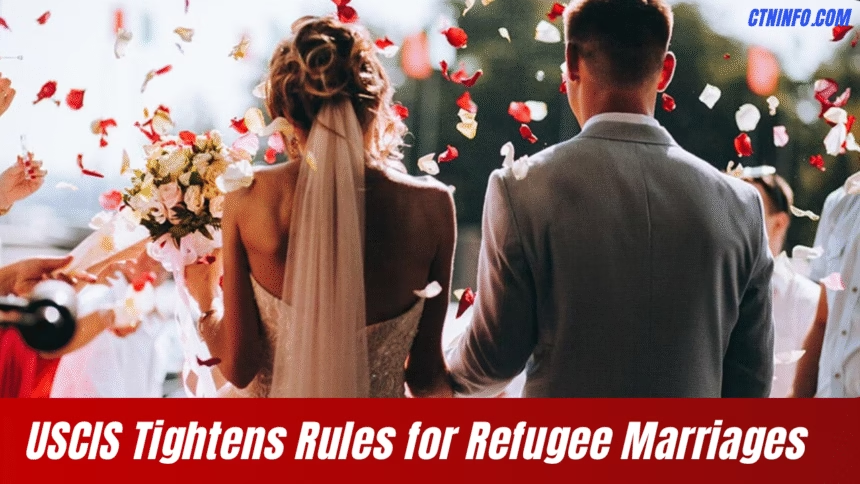The U.S. Citizenship and Immigration Services (USCIS) has revised its policy regarding the recognition of marriages for refugees and asylum seekers, introducing stricter requirements that may complicate the process for many applicants. According to policy alert PA-2025-11, published Tuesday, the agency will now enforce the “place-of-celebration” rule without exception, eliminating recognition of marriages not formally registered with civil authorities. The directive applies retroactively to all cases filed or pending since March 3, 2025, as reported by NepYork.
Until recently, USCIS accepted unregistered religious, tribal, or customary marriages in cases where couples could demonstrate that civil marriage was inaccessible—due to persecution, discriminatory laws, or significant bureaucratic obstacles. In such situations, alternative evidence such as cohabitation, shared children, or community testimony was deemed sufficient.
That flexibility has now been removed. Under the updated guidelines—codified in Volume 4, Part C, Chapters 2 and 4 of the USCIS Policy Manual—only marriages legally recognized in the jurisdiction where the ceremony took place will be valid for immigration benefits.
This policy shift affirms a legal standard previously established in decisions by the Board of Immigration Appeals, including Matter of Lovo-Lara, Da Silva, and Garcia. However, as NepYork notes, this legal precedent is now formalized as the sole standard, removing discretion for case-by-case interpretation.
The change comes amid a broader recalibration of U.S. immigration policy driven by executive orders 14148 and 14163, both signed by President Donald Trump on January 20, 2025. The first order repeals several earlier directives viewed as overly lenient, while the second redefines eligibility criteria for the U.S. refugee resettlement program.
In its policy alert, USCIS acknowledged that some applicants may have relied on previous exceptions but argued that consistency and fairness across all cases must take precedence. The updated rule will apply to all relevant petitions, including those already in progress.
The policy may significantly impact refugees from countries where civil marriage is inaccessible or nonexistent. In many conflict zones or under authoritarian regimes, religious or customary marriages are the only option available. Under the new guidelines, however, those unions will no longer be valid for immigration purposes unless accompanied by a legally recognized marriage certificate issued by local authorities.
The “place-of-celebration” rule now requires applicants to provide an official document proving their marriage is legally valid in the country or region where it occurred. This may pose challenges in jurisdictions where civil registration is either dysfunctional or restricted for certain groups, such as women, religious or ethnic minorities, or political dissidents.
USCIS officers are instructed to apply this standard not only to new applications but also to pending cases, marking a significant shift in how the agency evaluates family-based refugee and asylum claims.
Source: NepYork






